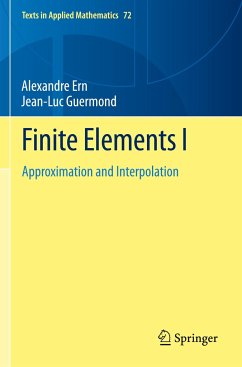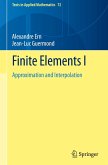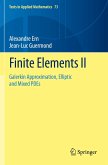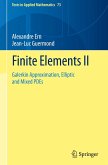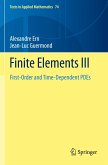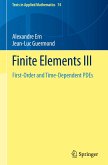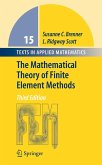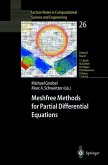This book is the first volume of a three-part textbook suitable for graduate coursework, professional engineering and academic research. It is also appropriate for graduate flipped classes. Each volume is divided into short chapters. Each chapter can be covered in one teaching unit and includes exercises as well as solutions available from a dedicated website. The salient ideas can be addressed during lecture, with the rest of the content assigned as reading material. To engage the reader, the text combines examples, basic ideas, rigorous proofs, and pointers to the literature to enhance scientific literacy.
Volume I is divided into 23 chapters plus two appendices on Banach and Hilbert spaces and on differential calculus. This volume focuses on the fundamental ideas regarding the construction of finite elements and their approximation properties. It addresses the all-purpose Lagrange finite elements, but also vector-valued finite elements that are crucial to approximate the divergence and the curl operators. In addition, it also presents and analyzes quasi-interpolation operators and local commuting projections. The volume starts with four chapters on functional analysis, which are packed with examples and counterexamples to familiarize the reader with the basic facts on Lebesgue integration and weak derivatives. Volume I also reviews important implementation aspects when either developing or using a finite element toolbox, including the orientation of meshes and the enumeration of the degrees of freedom.
Volume I is divided into 23 chapters plus two appendices on Banach and Hilbert spaces and on differential calculus. This volume focuses on the fundamental ideas regarding the construction of finite elements and their approximation properties. It addresses the all-purpose Lagrange finite elements, but also vector-valued finite elements that are crucial to approximate the divergence and the curl operators. In addition, it also presents and analyzes quasi-interpolation operators and local commuting projections. The volume starts with four chapters on functional analysis, which are packed with examples and counterexamples to familiarize the reader with the basic facts on Lebesgue integration and weak derivatives. Volume I also reviews important implementation aspects when either developing or using a finite element toolbox, including the orientation of meshes and the enumeration of the degrees of freedom.

